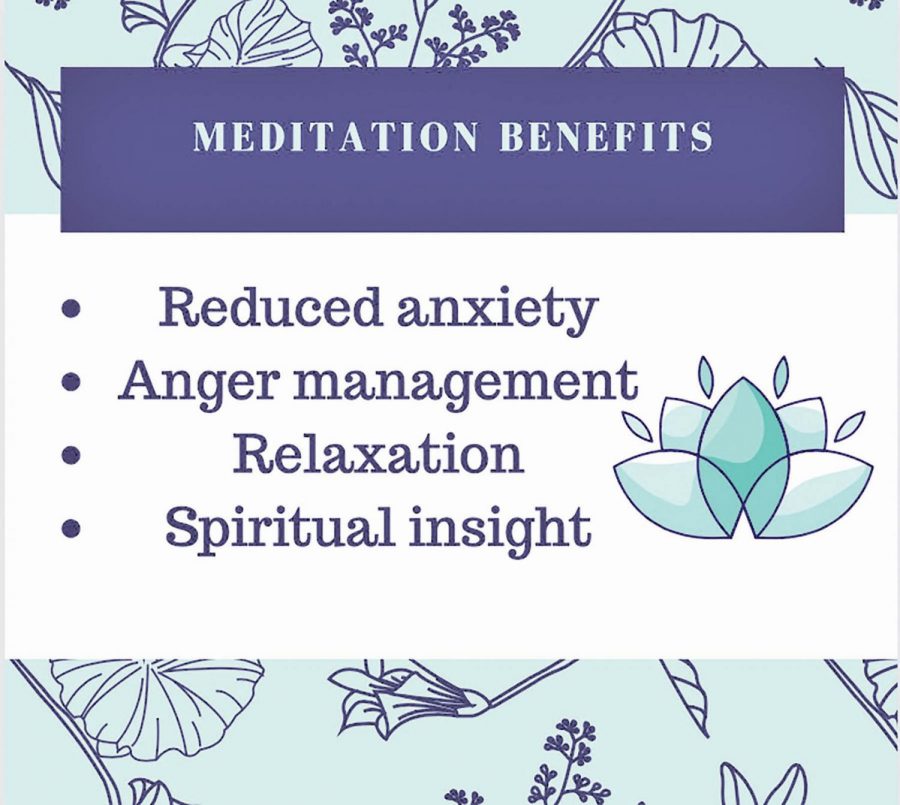Consider turning to meditation to release stress during end of semester
The Hippies are taking over. I mean it. With the return of 70s fashion, the emergence of astrology as an industry and essential oils in medicine cabinets across modern America, counterculture has become mainstream.
Elements of counterculture have deep roots and nestled in the good vibes and crystal collections lies a centuries-old tradition that has become a staple of self-care: meditation.
Meditation is often characterized as nothing but deep breaths in an effort of achieving zen. While this is a massive part of meditation, it can also be used to find out more about yourself and the universe, providing insight into the subconscious and beyond.
In Buddhist practice, there are two types of meditation: zen and piercing insight. Zen centers the body and mind into a state of calm, while piercing insight focuses on reaching a state of awakening and understanding truth. Though buddhist practice strives to reach nirvana, meditation has origins in many religions and practices. Meditation has expanded beyond its roots and is used to cope with anxiety, stress and other issues plaguing the mind and body.
It can be easy to write off alternative medicinal and spiritual practices as naive and impractical, but these practices are less of a cure and more of a tool.
The concentrated breathing and mindfulness present in zen meditation are not a cure for anxiety by any means, but can be a helpful way to center and ground oneself. Spirituality and science are interconnected in this area, as the source of success lies not only in the cosmos, but in a tangible, earthly explanation: the Vagus nerve.
The Vagus nerve is a long, highly interconnected nerve responsible for the management of stress and its impact on the mind and body. It is through this nerve and its regulation of the parasympathetic nervous system (think flight or fight response) that meditation results in such positive results.
Meditation, when used consistently and intentionally, can reduce stress and anxiety, and encourage better management of anger and controlled thought.
Whether it be aligning your chakras or calming down after a hectic day, meditation is an incredible action to add to your everyday routine.
I practice it almost daily, may it be in a traditional criss-cross formation or sitting outside under a tree.
It helps me understand the universe and myself in ways only achieved through deep reflection and disconnection from day- to-day-chaos.
The key to meditation is not to try to be perfectly zen like a Buddhist monk, but rather to use it to understand yourself and how you interact with the world around you.
Whether you’re interested in reducing stress or reaching nirvana, meditation is worth a try.
Close your eyes, focus on your breath, and open yourself up to where the practice takes you.








